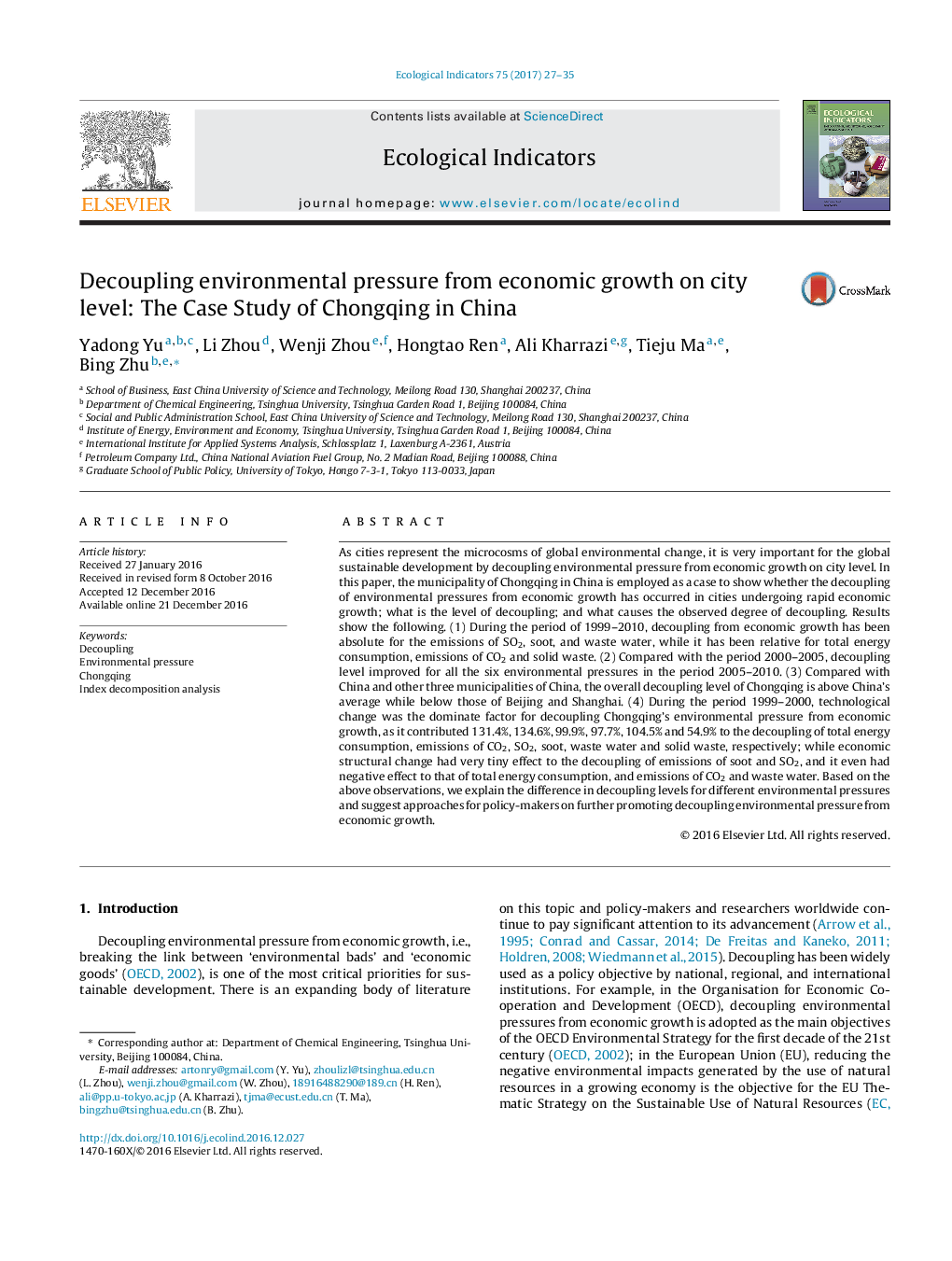| کد مقاله | کد نشریه | سال انتشار | مقاله انگلیسی | نسخه تمام متن |
|---|---|---|---|---|
| 5741794 | 1617127 | 2017 | 9 صفحه PDF | دانلود رایگان |
- We explore the decoupling level of Chongqing during the period of 1999-2010.
- Decoupling is absolute for the emissions of SO2, soot and waste water in Chongqing.
- Technological change is the dominated driving force for decoupling in Chongqing.
- We explain the difference of decoupling level for different environmental pressures.
As cities represent the microcosms of global environmental change, it is very important for the global sustainable development by decoupling environmental pressure from economic growth on city level. In this paper, the municipality of Chongqing in China is employed as a case to show whether the decoupling of environmental pressures from economic growth has occurred in cities undergoing rapid economic growth; what is the level of decoupling; and what causes the observed degree of decoupling. Results show the following. (1) During the period of 1999-2010, decoupling from economic growth has been absolute for the emissions of SO2, soot, and waste water, while it has been relative for total energy consumption, emissions of CO2 and solid waste. (2) Compared with the period 2000-2005, decoupling level improved for all the six environmental pressures in the period 2005-2010. (3) Compared with China and other three municipalities of China, the overall decoupling level of Chongqing is above China's average while below those of Beijing and Shanghai. (4) During the period 1999-2000, technological change was the dominate factor for decoupling Chongqing's environmental pressure from economic growth, as it contributed 131.4%, 134.6%, 99.9%, 97.7%, 104.5% and 54.9% to the decoupling of total energy consumption, emissions of CO2, SO2, soot, waste water and solid waste, respectively; while economic structural change had very tiny effect to the decoupling of emissions of soot and SO2, and it even had negative effect to that of total energy consumption, and emissions of CO2 and waste water. Based on the above observations, we explain the difference in decoupling levels for different environmental pressures and suggest approaches for policy-makers on further promoting decoupling environmental pressure from economic growth.
Journal: Ecological Indicators - Volume 75, April 2017, Pages 27-35
